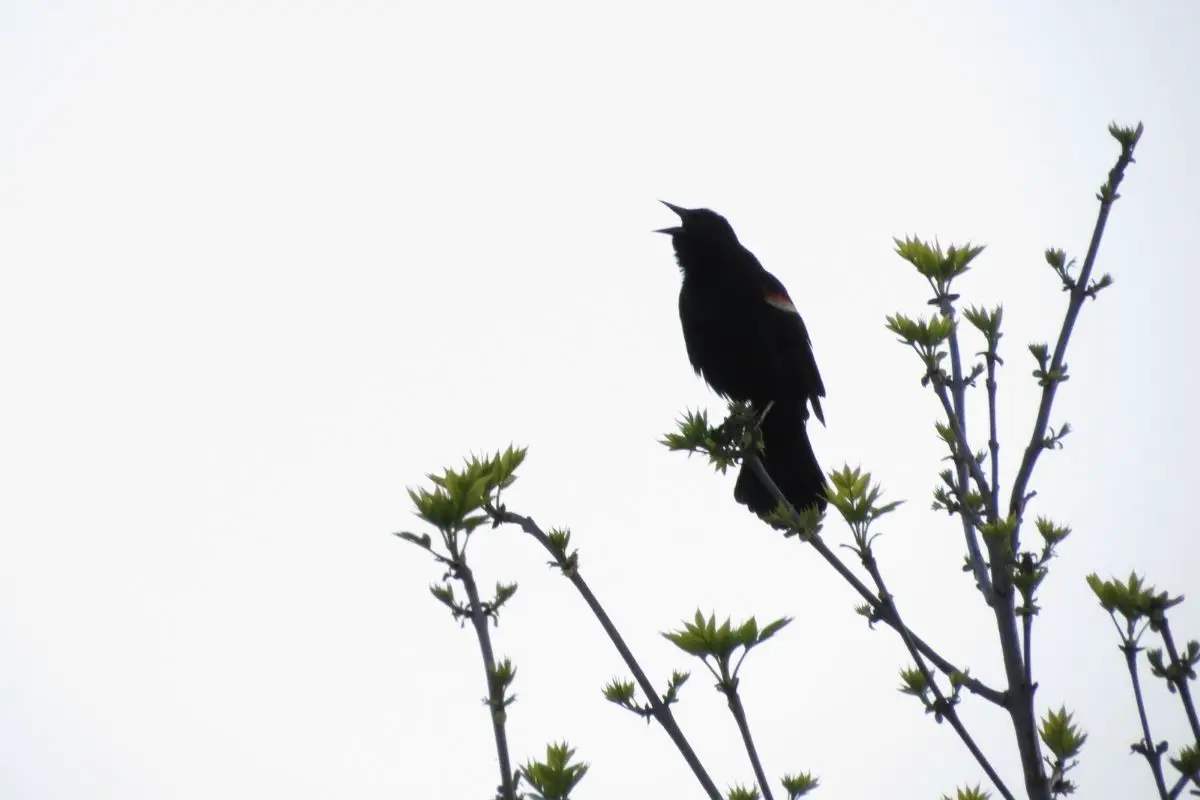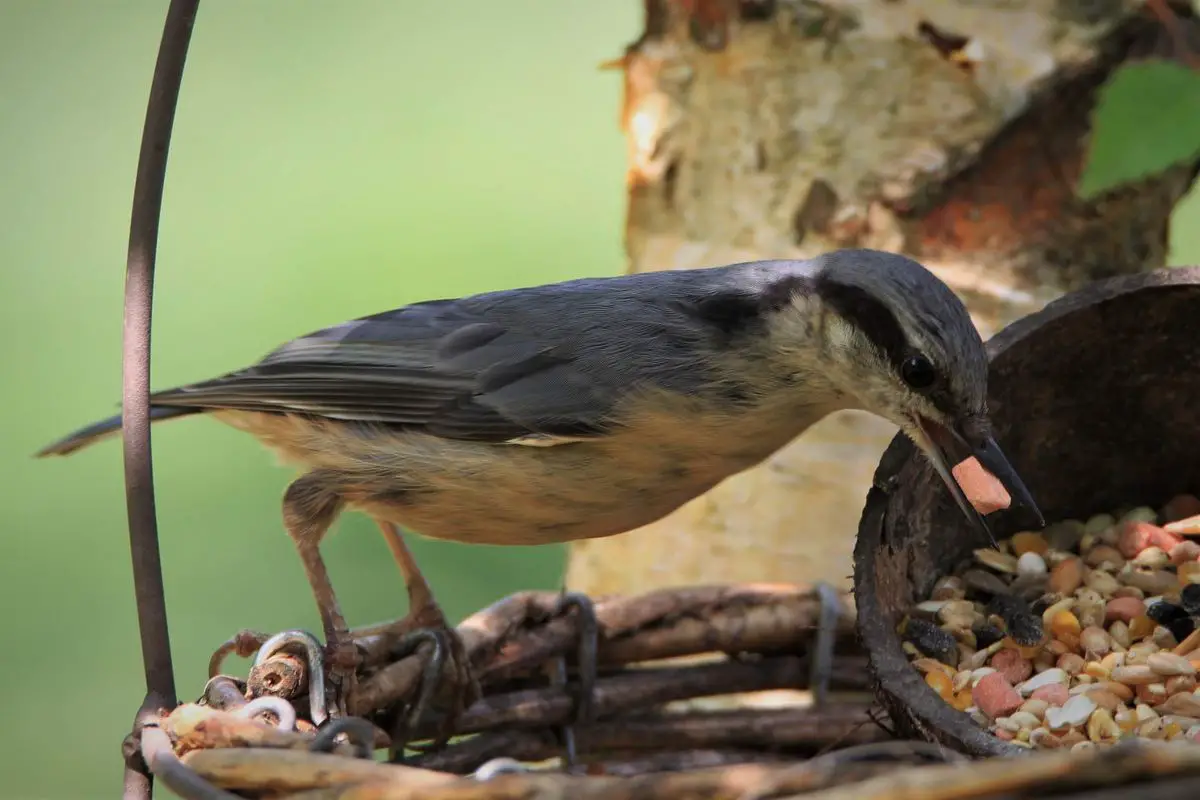Why Do Birds Chirp At Night? (Key Facts To Know)
You are in bed. Everything has been done for the day: you have finished work, relaxed in the evening, had dinner, cleaned your body and teeth, before getting dressed and, settling down to sleep.
Now, as you lie there at 11pm in the night, you hear it softly from outside your window. A hearty chirp from a local bird.

Depending on your feelings, you may alternatively welcome this chirp as a soothing sound to help you drift off or as an unwavering nuisance that keeps you up half the night.
Whether you love the sounds of birds at night or hate them intensely, it is kind of strange that they make music at that time.
Most birds awaken during the day, and the ones at night tend to remain silent to either catch prey or to not become dinner. So, why do birds chirp at night? Is there a reason?
Yes, in fact, there are many reasons that we will get into now.
Reasons Bird Chirp At Night
Territorial claims
The most obvious answer would be territoriality. In other words; if a bird wants to claim its own space, then it makes noise at night. This way, the bird can let others know who owns what.
If another bird comes near, then the first one might try to chase it away. The first one also knows where its boundaries are. It does not want any intruders.
It might also be the case that the bird wants to call attention to itself. Maybe it wants to attract mates or even intimidate rivals.
Birds can also use their calls to announce their presence to other birds. They often do so when they feel threatened or need help.
Calling for help
Some birds make distress calls. For example, a hawk might make such a call if it is attacked by an owl.
Such a call might be used more frequently than the territorial chirps because it needs to be heard over long distances.
Hearing the call of a predator at night might give you enough time to send out a distress call before hiding somewhere safe.
Dangers Of Being Out At Night
Not only do birds chirp, they also fly around at night. Sometimes they might come too close to buildings and trees. They might collide with them and fall into danger.
Birds can die if they crash into walls or trees. Light pollution around human settlements has caused an uptick in this behavior, as the lampposts and outdoor lights we put on can be blinding and quite disorientating for an animal that relies on sight.
Another thing that might happen is that predators like owls, eagles, foxes and cats might attack them. These animals hunt and eat at night.
So, maybe you should keep your windows closed in order to avoid these dangers.
Finding Food

Some birds chirp at nights simply to find food or from excitement at finding food. Perhaps they are hungry after having eaten all day. Or perhaps they are trying to attract potential partners or mates.
These birds might be looking for insects, which are easier to find at night. Insects often move towards light sources like streetlights and lamps. And they usually go where there is food.
Insects are also attracted by birds’ songs. That’s why you sometimes see swarms of flies following a flock of songbirds.
Finally, some birds eat berries and fruits that ripen at night.
Finding Their Flock
If the bird finds no food, then it might look for its flock again. A lot of birds will travel together in flocks. This helps them to stay safe during long migrations.
This is especially true for migratory birds. Those birds migrate between different regions every year. Some birds follow paths called migration routes.
During their migration, they might rest in groups or stay in flying patterns to be safe.
When they get tired, they take off from the group and continue along their flight path alone, while still calling to identify where the group is heading. The next morning, they join a group again.
Finding Their Babies
Birds can also use sound to locate their chicks. If one of the parents doesn’t return when feeding the chicks, then the chicks might cry for help. That’s because they need both their parents to survive.
So, the parents will search for their offspring until they find them, using sound to communicate with them over some distance.
Once they’ve located their chicks, they will return to them and feed them, shelter them, or they might even carry them away from danger should they be in any.
The parents will also try to protect their young against predators, and so finding them in these situations is a top priority.
Other Reasons
Some birds chirp at the beginning of fall. At this time of the year, the weather gets colder. So, they want to prepare themselves for winter.
There might also be other reasons for birds to chirp at night. For example:
- To attract flying insects
- To contact neighbors
- To let others know of their presence
- To signal distress
How Do Birds Chirp?
Like all animals, birds have specialized organs that generate sounds.
Their lungs form an air sac called a syrinx. This organ produces sounds as the bird breathes. Each part of the syrinx has a special job.
First, the larynx (the upper part) opens and closes to make sounds. Then, the trachea (the main tube) carries air into the lungs.
As this happens, the air flows through the syringeal ducts. Here, the air vibrates and creates sound.
Finally, the oesophagus joins the trachea and moves air through the bronchial tubes. The sound waves pass through the nasal cavity, which contains the auditory nerve.
The eardrum picks up the sound waves and transmits them to the brain.
In birds with a syrinx, the left side of the lung works as a speaker. The right side does the same thing on the other side of the body.
Because the left and right sides work independently, they can produce different notes. And they don’t always play the same songs.
For instance, some birds sing songs that start out fast. Then, they slow down. Other birds may sing melodies that go up and down.
Most birds use only two types of songs. One song is used for courtship and mating. The other one is used for territorial defense.
Different birds sing differently. But most species can recognize their own songs.
Many birds also imitate humans by singing in human-like tones. Birds’ songs are usually similar to those of their relatives.
Many bird species also mimic other birds’ sounds. For example, crows imitate owls, Ravens imitate jackdaws, and Nightingales imitate thrushes.
Conclusion
Birds chirp at night really for the same reason that they chirp during the day. It is often to establish territory, find food, find their nest, or just out of interest and excitement.
As such, there is really no solution or need to stop birds singing at night, as they are going to do it regardless of how we feel about it.
